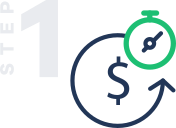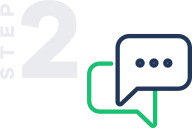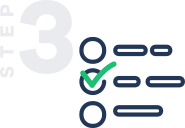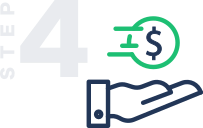› Industries › Equipment & Furniture Wholesalers




📦 Wholesale Equipment & Furniture Loans: Help manage large orders, long payment cycles, and cash flow gaps.
💰 Financing types include: Term loans, lines of credit, invoice factoring, equipment loans, and merchant cash advances.
🚚 Use funds for: Inventory, vendor payments, staff, delivery vehicles, and business expansion.
⚠️ Watch out for: High interest rates, collateral requirements, and rigid repayment terms—especially with poor credit.
⚡ Fast funding: Most loans disburse in 1–3 business days; SBA loans take 8–12 weeks.
🔁 Bad credit? 6 of 8 loan options are still accessible, especially if you have strong revenue or collateral.
📈 On-time repayment: Helps build business credit for better terms in the future.
Equipment and furniture wholesalers play a vital role in supplying the commercial backbone of retail, office, and industrial sectors. These businesses often juggle high-volume inventory purchases, vendor relationships, and lengthy invoice payment cycles, which can lead to cash flow disruptions. To scale operations and meet the unique challenges of the industry, wholesalers often rely on financing.
At United Capital Source, we specialize in helping equipment and furniture wholesalers get the right loan program to fit their needs. Whether it’s managing cash flow gaps or expanding your business, our tailored business financing options can help your company thrive.

United Capital Source specializes in accounts receivable factoring services for equipment and furniture wholesalers. With this type of working capital loan, the business lender, or “factor,” purchases unpaid invoices for a discount price. Instead of being paid several months after an order is processed, you are paid by the business lender in just a few business days. It is now entirely up to the business lender to collect from your customer. When this happens, the business lender gives you the remainder of the first payment.
The funds can be used for just about anything. You can pay your vendors ahead of time to receive discounts or capitalize on off-season discounts on bulk purchases. Unforeseen expenses or temporary gaps in cash flow can be quickly alleviated. Having more cash on hand also allows you to work with whomever you want instead of being so desperate for cash that you’ll accept potentially-hazardous terms.
Unlike more traditional business loans, tight cash flow and a certain amount of money in your bank account are not required to access accounts receivable factoring. This is why many UCS clients sell unpaid invoices when business is slow. Arguably the biggest advantage of accounts receivable factoring, however, is predictability. When you know how much money will be flowing in and out of your business, you can cover planned expenses like tax payments and schedule long-term investments when it makes sense for your budget.
If accounts receivable factoring doesn’t sound right for you, we are happy to discuss other perfectly feasible options like short-term working capital loans or business lines of credit. Both can be crafted to have the same functions listed above, including inventory management. The latter option can allow you to regularly purchase inventory or pay bills that you otherwise wouldn’t be able to cover for another week or two. If you get an unexpectedly large invoice, a business line of credit can cover the resources required to fill the order on time. Apply now to see how much you qualify for!
Equipment & Furniture Wholesaler Business Loans are a type of small business financing designed to help wholesale companies that deal in high-volume equipment and furniture purchases. These business loans can support inventory acquisition, vendor payments, operational expansion, and long-term growth.
Retailers often face seasonality constraints that can impact inventory levels and cash flow. Wholesale businesses can leverage their inventory to maximize working capital. These loans provide business owners with access to capital for business purposes, such as purchasing equipment, paying staff, or financing large orders.
Small business loans for equipment and furniture wholesalers can come in several forms, including term loans, business lines of credit, and equipment financing. Working with experienced lenders ensures the financing solution aligns with your business needs.
Equipment & Furniture Wholesaler Business Loans come in the form of:
Business loans for equipment and furniture wholesalers function by providing working capital or equipment-specific funding to help maintain operations and facilitate growth. Financing options for wholesale businesses can include loans, lines of credit, or asset-backed loans.
Asset-based lending is a common wholesale financing solution that uses business assets as collateral. For example, accounts receivable financing can provide advance rates of up to 90% for wholesale businesses, helping them improve their cash flow while waiting for customer payments.
Many equipment and furniture wholesalers require expensive business equipment, such as delivery trucks, forklifts, assembly equipment, and material handling equipment, to support their operations. In these cases, equipment financing would be the most sensible option.
Purchase order financing enables wholesale businesses to convert cash into sales by facilitating letters of credit. SBA loans can enhance cash flow through more extended amortization periods, resulting in more manageable monthly payments for businesses. These flexible financing options ensure wholesalers have the funds they need when they need them.
| FUNDING TYPES | MAX AMOUNTS | STARTING COSTS | SPEED |
|---|---|---|---|
| Merchant Cash Advances | $5k – $5m | Starting at 1-6% p/mo | 1-2 business days |
| SBA Loan | $50k - $10m | Starting at Prime Rate + 1% | 4 -12 weeks |
| Business Term Loan | $5k - $10m | Starting at 1-4% p/mo | 1-3 business days |
| Business Line of Credit | $1k - $1m | Starting at 1% p/mo | 1-3 business days |
| Receivables/Invoice Financing | $10k - $25m | Starting at 1% p/mo | 1-2 weeks |
| Equipment Financing | Up to $10m per piece | Starting at Prime Rate + 1% | 3 -10+ business days |
| Revenue Based Financing | $10K – $5m | Starting at 1-6% p/mo | 1-2 business days |
Business loans provide essential working capital that helps wholesalers handle large orders and maintain inventory during seasonal fluctuations. These loans can significantly improve cash flow during extended payment cycles, allowing wholesalers to meet their financial obligations on time. They also enable business owners to purchase equipment or store fixtures to meet the increasing demand. Wholesalers can use funds to take advantage of supplier discounts through early or bulk purchases, boosting their profit margins.
Additionally, business loans support expansion efforts, such as opening new locations, hiring staff, or implementing advanced technology systems. They can also be used to cover daily operating expenses without compromising growth initiatives. Overall, access to capital empowers businesses to scale efficiently and serve larger clients without depleting their reserves.
Despite their many benefits, business loans can also introduce challenges for equipment and furniture wholesalers. Business loans require taking on business debt. High interest rates may be applied to businesses with lower credit scores, thereby increasing the overall cost of borrowing for these entities. Monthly loan payments can become a financial burden, especially if cash flow is inconsistent. Some loan programs may require a personal guarantee or the use of business assets as collateral, adding potential risk to the borrower.
Additionally, meeting eligibility requirements, such as maintaining a strong credit score, submitting tax returns, or providing detailed business plans, can be challenging for some small businesses. Repayment terms may also be inflexible, which can be problematic for wholesalers that experience seasonal fluctuations in revenue. Understanding the loan application process and selecting a structure that aligns with your financial strategy is essential to minimizing these potential drawbacks.
Pros:
Improves cash flow and inventory management.
Access to capital for equipment purchases and expansion.
Tailored financing solutions for wholesale businesses.
Flexible loan programs from alternative lenders.
Cons:
Potentially high interest rates depending on credit history.
Personal guarantee or collateral may be required.
Monthly loan payments could impact operations during slow seasons.
The amount of paperwork required depends on the product you choose. Funds can be approved and distributed for most products within 1-3 business days. Here’s how to apply:
The first step is choosing the most sensible solution to the problem at hand. This should require some research, as each product is designed for different types of expenses and cash flow cycles. Are you looking to cover a short-term or long-term expense? Is demand expected to increase or decrease in the coming months?
Considering the funds’ purpose will also help us determine the correct borrowing and terms for your needs.
Here are the documents and information required for all Wholesaler Business Loans:
SBA loans require additional documents and information, such as financial statements. To learn what’s needed for the SBA-backed loans, visit our SBA loan page.
You can begin the application process by calling us or filling out our one-page online application. Either way, you’ll be asked to enter the information from the previous section along with your desired funding amount.
Once you apply, a representative will contact you to explain the repayment structure, rates, and terms of your available options. This way, you won’t have to worry about any surprises or hidden fees during repayment.
If you’re approved, we’ll contact you within 24 hours. After closing, funds for most business financing products should appear in your bank account within 24 hours to one week.
Your business loan isn’t just a way to get financing for your business. It’s also an excellent opportunity to start building (or improving) your credit.
Regardless of the type of business loan you get, make all your required payments on time and in full. If you get a business credit line or another form of revolving credit, keep your balance below the credit limit.
Consistently making your business financing payments on time and in full will positively impact your credit. And that means preferred rates and terms when you next need business financing.
If your application is declined, it’s possible that you applied for the wrong product to meet your cash flow needs. We would likely recommend a different product with a less hazardous repayment structure in this case.
Your application might also be declined if it is determined that you cannot afford to take on more debt at this time.
If your credit score is holding you back from accessing financing, consider working with a reputable credit repair service to raise your scores.
Wholesale businesses require an experienced lender with tailored financing options to meet their specific needs. Traditional banks may offer competitive interest rates, but they often rely on equity or past financial performance to determine loan eligibility. This can slow the process and make approval more difficult.
A business loan marketplace like United Capital Source offers a straightforward loan application process, fast approvals, and quick funding. These lenders can customize financing options such as equipment leases, term loans, and business lines of credit to support small business growth.
Obtaining wholesale financing typically takes a few weeks, depending on the specific circumstances. The main requirement to qualify for wholesale financing is sufficient collateral to cover the debt. Some lenders may also require detailed financial projections.
While traditional lenders have strict credit score requirements and documentation needs (like personal financial statements or balance sheets), alternative lenders can offer flexible terms and faster turnaround. Wholesale financing solutions can be structured to meet the unique needs of a business specifically.
Yes, wholesaler businesses can qualify for SBA loans. SBA loans offer various options, including 7(a), 504, and Express loans. These loans are backed by the Small Business Administration and are ideal for long-term financing. SBA lenders can include banks, credit unions, and alternative financing facilitators.
SBA loans require lower down payment requirements compared to traditional loans. SBA loans can enhance cash flow through more extended amortization periods and do not have specific loan-to-value requirements for collateral.
SBA 7(a) loans can be used for working capital, equipment purchases, and business expansion. SBA loans can provide up to 100% financing for certain uses. SBA loans can have terms up to 25 years for real estate and up to 10 years for other purposes. The typical loan amount for SBA 7(a) loans ranges from $500,000 to $5 million.
Yes, six of the eight products mentioned above are accessible for borrowers with bad credit. Your rates may be higher, and your terms may be shorter because bad credit makes you more likely to default. However, if you have a strong cash flow or can provide collateral, your bad credit may have a less significant impact on your rates and terms. We can also customize your terms and payment frequency to ensure that you can make payments while staying current on other bills.
For some products, your credit score is irrelevant. Approval for a merchant cash advance is based on your debit and credit card sales volume. With accounts receivable factoring, approval depends on your customer’s creditworthiness, not your own.
The only product that is not accessible with bad credit is SBA loans. Compared to other products, SBA loans offer higher borrowing limits, lower interest rates, and longer repayment terms. If you have bad credit, you’ll be assigned shorter terms to ensure you repay the loan in full.


